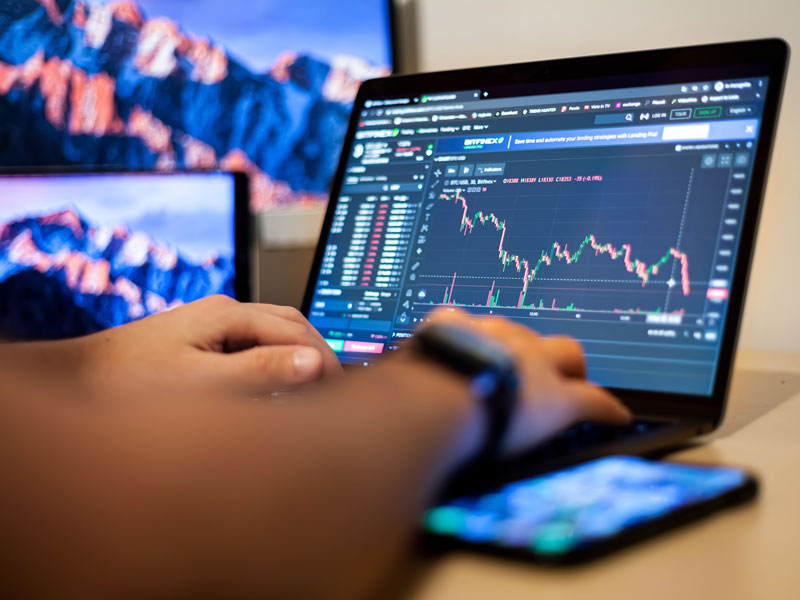
The Ultimate Guide to Online Forex Trading in 2023
As the world becomes increasingly interconnected, online forex trading has emerged as a potent tool for both individual investors and institutions. It opens the door to a vast market where currencies are traded globally, offering endless opportunities for profits and growth. If you’re thinking about diving into this exciting financial space, you’ve come to the right place. In this guide, we’ll cover essential aspects of online forex trading, including what it is, how to get started, strategies for success, and the importance of choosing the right broker like online forex trading South Africa Brokers.
What is Forex Trading?
Forex trading, also known as currency trading, involves the buying and selling of currencies on the foreign exchange market. The forex market is the largest and most liquid market in the world, with a daily trading volume exceeding $6 trillion. It operates 24 hours a day, five days a week, and allows traders to exchange one currency for another, usually in pairs such as EUR/USD or GBP/JPY.
Getting Started with Online Forex Trading
1. Learning the Basics
Before diving in, it’s crucial to understand key forex concepts, including:
- Currency Pairs: Currencies are quoted in pairs. For example, in the currency pair EUR/USD, the Euro is the base currency, and the US Dollar is the quote currency.
- Pips: A pip is the smallest price move that a given exchange rate can make, usually the fourth decimal place in a currency pair.
- Leverage: Forex trading often allows for the use of leverage, enabling traders to control larger positions with a smaller capital outlay.
2. Choosing a Broker
Choosing an effective broker is one of the most critical decisions for any forex trader. A good broker should be reputable, regulated, and offer a user-friendly trading platform. It’s important to consider:
- Regulation and compliance with financial authorities.
- The trading platform offered and its usability.
- Fees and commissions charged.
- Customer service and educational resources.
Developing a Trading Strategy
Successful forex trading relies heavily on strategy. Below are several types of popular trading strategies:
1. Day Trading
This involves making multiple trades within a single day based on small fluctuations in currency prices. Day traders typically do not hold positions overnight.
2. Swing Trading
Swing traders aim to capitalize on price changes over a few days or weeks. They often use technical analysis to identify potential reverse points in the market.

3. Scalping
Scalping is a high-frequency trading strategy focused on making small profits on minor price changes. Scalpers make dozens or hundreds of trades in a day.
4. Position Trading
This strategy involves maintaining a position for a longer duration, often weeks or months, based on fundamental analysis and macroeconomic trends.
Key Tools for Forex Trading
Here are essential tools that can help improve your trading:
1. Trading Platforms
Platforms like MetaTrader 4 or 5 are popular choices among traders for their comprehensive tools and user-friendly interfaces.
2. Economic Calendars
Economic calendars provide insight into upcoming events that could impact currency values, helping traders prepare for volatility and potential market movements.
3. Technical Indicators
Technical indicators such as Moving Averages, RSI, and MACD can help you make informed trading decisions based on historical data.
Risk Management in Forex Trading
Every trader should prioritize risk management to protect their capital. Some effective risk management strategies include:
- Setting Stop-Loss Orders: This tool automatically closes a trade when it hits a specified loss level.
- Diversification: Avoid putting all your capital into one trade. Spread your investments across different currency pairs.
- Using Proper Position Sizing: Ensure that you only risk a small percentage of your account on any single trade.
Staying Informed and Adapting
The forex market is constantly evolving, influenced by global economic trends, political events, and technological advancements. Continue educating yourself through webinars, trading courses, and financial news. Joining forex communities and forums can also be invaluable for sharing strategies and insights with fellow traders.
Conclusion
Online forex trading offers opportunities for profit but also carries risks. By understanding the fundamentals, developing a solid trading strategy, and managing risks effectively, you can navigate the forex market with greater confidence. Don’t forget that ongoing education and the careful selection of brokers like South Africa Brokers can significantly influence your trading success. Start your journey today and embrace the challenge of forex trading!